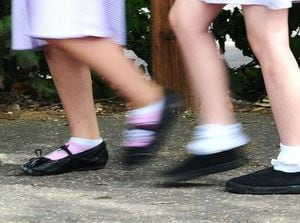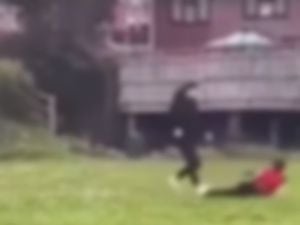Star comment: Scales tipping in balance of schools returning towards normal
What will the public inquiry find was the biggest mistake of the pandemic?

Too slow in the initial lockdown? The care homes disaster? Closing the schools?
A finding that closing the schools was a mistaken and unnecessary panic measure would be a provocative and controversial conclusion. It seemed intuitively obvious that schoolchildren mixing and then coming home would spread the deadly infection like wildfire, resulting in many more lost lives.
Pressure to close them – the Government held out at first – became irresistible.
There again, the move meant that healthy children, who have been at least risk from Covid, have suffered greatly, and when the schools finally did reopen the worst fears that it would detonate a new wave were not borne out by events, at least initially, although the advent of the Delta variant is perhaps changing the calibration, with whole swathes of children being sent home after positive tests.
How the inquiry views the handling of schools we shall have to wait for some time to find out, but what we do know is that the pandemic has seen the exams system thrown into chaos and a generation of children robbed of their education through continuing disruption and diminished opportunity, along with the social impact of being isolated from friends or cut off from them more subtly by a requirement to fear face masks.
Gavin Williamson, the Education Secretary, is holding out the hope of a new dawn come the new term in September. Schooling for most pupils will return to normal, he says, thanks to the vaccine rollout and a ramping up of testing.
Predictions of when things will return to normal have proven hazardous, and it's not even clear what normal will turn out to be. There is not going to be a post-Covid era because the scientists warn us that it is not going to go away, and we are going to have to find a way to live with it, as opposed to dying from it in the awful numbers we have seen over the past 18 months.
Weighing the balance of harms in schools has always presented a difficult judgment, but the scales have been tipping.
It's still possible to get things badly wrong, but many will feel the children's education has suffered enough.
Among those cheering Freedom Day are the burglars.
They have been having it tough with everybody staying at home. So much better if everybody is back at the workplace, or taking the opportunity to have a summer break, leaving the home invitingly empty.
With the long weeks of lockdown, householders may have become somewhat lax or blase about their security, and need to be reminded of the basics again.
Burglars are human beings. Not very pleasant human beings, but they share the general trait of human beings to prefer things to be easy, rather than for them to be difficult.
So if you pull up the drawbridge by measures such as beefy locks, security cameras, motion sensor lights, and so on, the burglar looking for easy pickings – and these are often opportunistic crimes – will be more likely to move on and look for another victim who causes them less of a headache.
From a crime prevention point of view, the lockdown mentality has to be superseded by a return of the lockout mentality.
Don’t make it easy for them.





